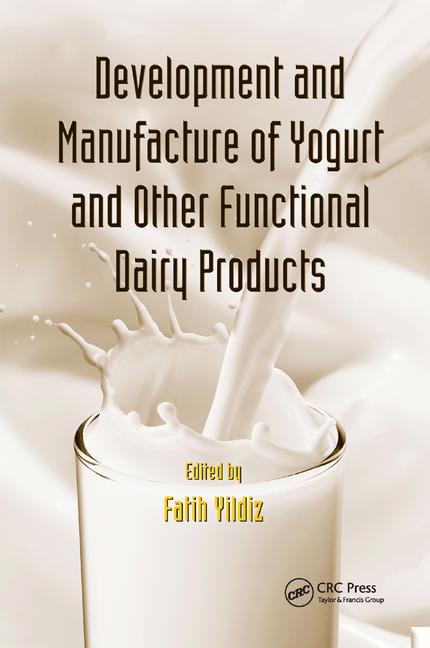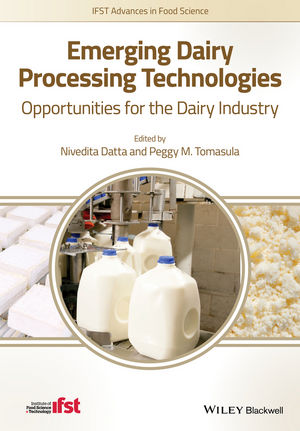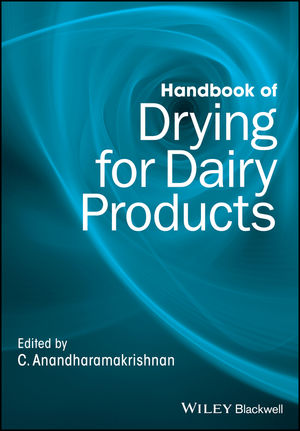Tools for a Functional Dairy HACCP Program
HACCP (hazard analysis critical control point) systems have been utilized by the U.S. dairy industry since the mid-1980s, when everything was a critical control point.

HACCP (hazard analysis critical control point) systems have been utilized by the U.S. dairy industry since the mid-1980s, when everything was a critical control point. The International Dairy Foods Association, Washington, D.C., and other dairy-based organizations popularized the use of HACCP during the early-to-late 1990s. However, truly functional HACCP programs for most dairy plants did not come of age until the first decade of the 21st century.
Five major “drivers” caused the maturation of U.S. dairy plant HACCP programs:
1. The 2001 U.S. Food & Drug Administration Juice HACCP regulation required all plants processing juice beverages to have a viable and operational HACCP program.
2. The 2002 IDFA “Dairy HACCP Manual” and its subsequent updates (latest edition is 2010) provided 21 dairy product models and extensive recommendations on functional prerequisite programs.
3. Final adoption of the National Conference on Interstate Milk Shipments voluntary HACCP-based regulatory program in 2004 for Grade “A” dairy plants.
4. Popularization of the Global Food Safety Initiative third-party certification concept and the Safe Quality Foods scheme with HACCP as a core requirement (2003 to the present).
5. The January 2011 FDA Food Modernization Safety Act (FSMA) with its 18-month deadline for all food plants to have a hazard analysis and “preventative measures.”
These five drivers provide insight for developing functional dairy HACCP programs. Six state-of-the-art HACCP tools are listed below.
Use of widely accepted forms. By using common HACCP formats for documenting and recording HACCP operational information, such as the Randolph HACCP model forms (www.randolphconsulting.com) and/or the NCIMS HACCP model forms (www.ncims.org/HACCPDocuments.htm), internal or external audits can be shortened and reduce an auditor’s learning curve in understanding unfamiliar HACCP forms.
Up-to-date staff training. The minimum goal should be HACCP training every four years for HACCP team members. Also, the new FDA Food Safety Modernization Act requires dairy plants to document food safety training programs.
Software. Developing new or updating existing HACCP programs can be simplified using a HACCP software program with a good track record. The advantage of using HACCP software versus paper and pen or internally developed software programs is that, similar to income tax software, making changes in a plant’s HACCP program using a fully integrated HACCP software program requires only one entry of a piece of information; the software makes all other required changes.
Fully integrated electronic HACCP record system. Data used to support the HACCP written program is commonly captured on written paper documents, either by operators using manual logs or through instrumentation producing paper records. Both the Grade A Pasteurized Milk Ordinance, states and FDA accept electronic data capture systems. These systems reduce records burdens on operators and are more effective in identifying unacceptable operating conditions.
Detailed process flow diagrams. Product flow diagrams are the foundation for any effective HACCP hazard analysis, yet too many have been simplified (see the “bad” example) to where they no longer include all ingredients, storage of ingredients or packaging, screens or filters, components of the pasteurization system or key processing steps addressing physical product changes. The result is a weak HACCP program.
Intense internal HACCP audits. Effectively trained plant HACCP team members need to develop strong internal HACCP audits that are conducted a minimum of once every six months, testing the on-going implementation of the plant’s HACCP written program. SQFI has a thorough internal assessment tool (audit form) that can be downloaded from its website (www.sqfi.com/documents) for $25 and used to building strong internal HACCP audit program.
Learn more about food safety at Randolph Associates Inc.’s HACCP training workshops scheduled for June 20–22 (Kansas City, Mo.), Sept. 12–14 (Boise, Idaho), Nov. 14–16 (Chicago) and Dec. 5–7 (New Orleans). Contact Kristy Clark at 205-595-6455 or Kristy.clark@raiconsult.com.
Allen R. Sayler is vice president, food safety, technology and regulatory solutions of Randolph Associates Inc. He can be reached at allen.sayler@raiconsult.com.

HACCP (hazard analysis critical control point) systems have been utilized by the U.S. dairy industry since the mid-1980s, when everything was a critical control point. The International Dairy Foods Association, Washington, D.C., and other dairy-based organizations popularized the use of HACCP during the early-to-late 1990s. However, truly functional HACCP programs for most dairy plants did not come of age until the first decade of the 21st century.
Five major “drivers” caused the maturation of U.S. dairy plant HACCP programs:
1. The 2001 U.S. Food & Drug Administration Juice HACCP regulation required all plants processing juice beverages to have a viable and operational HACCP program.
2. The 2002 IDFA “Dairy HACCP Manual” and its subsequent updates (latest edition is 2010) provided 21 dairy product models and extensive recommendations on functional prerequisite programs.
3. Final adoption of the National Conference on Interstate Milk Shipments voluntary HACCP-based regulatory program in 2004 for Grade “A” dairy plants.
4. Popularization of the Global Food Safety Initiative third-party certification concept and the Safe Quality Foods scheme with HACCP as a core requirement (2003 to the present).
5. The January 2011 FDA Food Modernization Safety Act (FSMA) with its 18-month deadline for all food plants to have a hazard analysis and “preventative measures.”
These five drivers provide insight for developing functional dairy HACCP programs. Six state-of-the-art HACCP tools are listed below.
Use of widely accepted forms. By using common HACCP formats for documenting and recording HACCP operational information, such as the Randolph HACCP model forms (www.randolphconsulting.com) and/or the NCIMS HACCP model forms (www.ncims.org/HACCPDocuments.htm), internal or external audits can be shortened and reduce an auditor’s learning curve in understanding unfamiliar HACCP forms.
Up-to-date staff training. The minimum goal should be HACCP training every four years for HACCP team members. Also, the new FDA Food Safety Modernization Act requires dairy plants to document food safety training programs.
Software. Developing new or updating existing HACCP programs can be simplified using a HACCP software program with a good track record. The advantage of using HACCP software versus paper and pen or internally developed software programs is that, similar to income tax software, making changes in a plant’s HACCP program using a fully integrated HACCP software program requires only one entry of a piece of information; the software makes all other required changes.
Fully integrated electronic HACCP record system. Data used to support the HACCP written program is commonly captured on written paper documents, either by operators using manual logs or through instrumentation producing paper records. Both the Grade A Pasteurized Milk Ordinance, states and FDA accept electronic data capture systems. These systems reduce records burdens on operators and are more effective in identifying unacceptable operating conditions.
Detailed process flow diagrams. Product flow diagrams are the foundation for any effective HACCP hazard analysis, yet too many have been simplified (see the “bad” example) to where they no longer include all ingredients, storage of ingredients or packaging, screens or filters, components of the pasteurization system or key processing steps addressing physical product changes. The result is a weak HACCP program.
Intense internal HACCP audits. Effectively trained plant HACCP team members need to develop strong internal HACCP audits that are conducted a minimum of once every six months, testing the on-going implementation of the plant’s HACCP written program. SQFI has a thorough internal assessment tool (audit form) that can be downloaded from its website (www.sqfi.com/documents) for $25 and used to building strong internal HACCP audit program.
Learn more about food safety at Randolph Associates Inc.’s HACCP training workshops scheduled for June 20–22 (Kansas City, Mo.), Sept. 12–14 (Boise, Idaho), Nov. 14–16 (Chicago) and Dec. 5–7 (New Orleans). Contact Kristy Clark at 205-595-6455 or Kristy.clark@raiconsult.com.
Allen R. Sayler is vice president, food safety, technology and regulatory solutions of Randolph Associates Inc. He can be reached at allen.sayler@raiconsult.com.
Looking for a reprint of this article?
From high-res PDFs to custom plaques, order your copy today!





